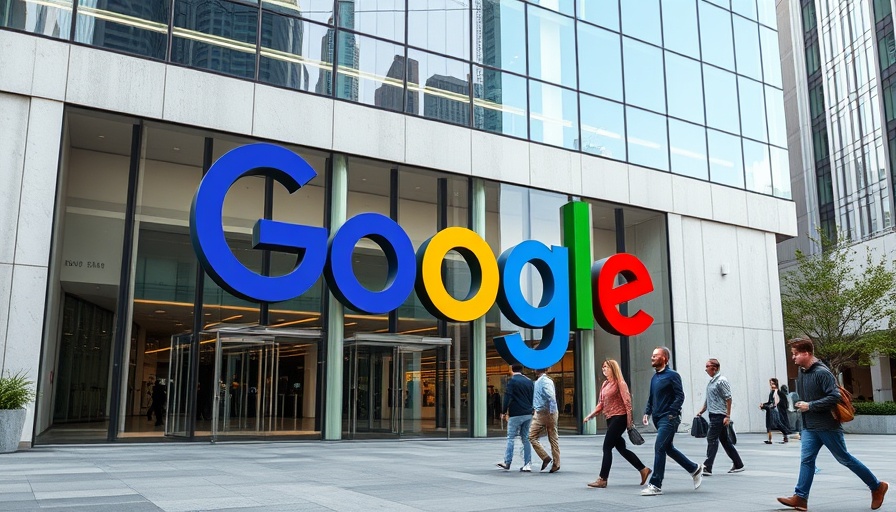
UK's Move to Challenge Google's Dominance in Search
The U.K. government is making headlines with a bold initiative aimed at curbing Google's overwhelming influence in the digital marketplace. The Competition and Markets Authority (CMA) announced its consideration of a new market status designation for Google, which could compel the tech giant to present users with alternative search options and fairer ranking of results. This proposal has sparked significant interest across various sectors, indicating a potential shift in how tech giants operate within the UK.
Why This Matters: Understanding the Context
Google controls an astonishing 90% of the search market in the UK, a dominance that raises concerns about competition and consumer choice. The CMA's chief executive, Sarah Cardell, highlighted that UK businesses faced high advertising costs associated with Google search ads, spending over £33,000 per advertiser last year. If competition were functioning effectively, these costs would likely be lower. This move could usher in a new era of transparency and fairness in how consumers interact with search engines.
Proposed Changes and Their Implications
The proposal suggests several measures including choice screens for users, allowing them to select and switch between search services freely, as well as ensuring fair ranking processes for search results. Moreover, publishers will gain more control over how their content is utilized by Google's AI services. If these measures are implemented, they may not only reshape Google's operational dynamics but also provide a significant boost to innovation within the UK tech ecosystem.
The Future of Search: Anticipated Trends and Innovations
As the CMA moves forward with consultations, the implications for the future of search technology are profound. The anticipated changes could even pave the way for the development of alternative search engines and platforms, enhancing digital innovation and potentially benefiting small businesses and consumers alike. With more control over data and search options, users might experience a browsing environment more tailored to their preferences.
Concerns and Counterarguments: What Are the Risks?
While the proposed changes present an optimistic outlook, skepticism remains regarding their potential effectiveness. Critics argue that the measures might not significantly alter the competitive landscape dominated by Google. Additionally, the implications of regulating a tech giant of this scale raise questions about feasibility and the risk of unintended consequences. Striking the right balance between regulation and innovation will be crucial.
Calls for Participation: Your Voice Matters
The CMA is actively seeking input from industry stakeholders as it considers the designation for Google. This is an opportunity for tech firms, consumers, and publishers to express their views on the matter. The consultation period, ending on October 13, will significantly shape how digital markets evolve in the UK. Stakeholders are encouraged to participate in the dialogue to ensure that a range of perspectives is considered.
Conclusion: The Quest for Fairer Competition
The UK’s move to reassess Google’s market position serves as a vital catalyst for change in the tech sector, advocating for fairness, consumer choice, and the protection of data privacy. By fostering an environment of enhanced competition, the U.K. could emerge as a global leader in digital market practices. In a world increasingly shaped by technology, the decisions made now will echo for years to come, potentially empowering consumers and leveling the playing field for smaller firms. It’s essential that stakeholders continue to engage in this pivotal conversation, understanding the significant implications for both the UK and global tech landscapes.
 Add Row
Add Row  Add
Add 



 Add Row
Add Row  Add
Add 

Write A Comment